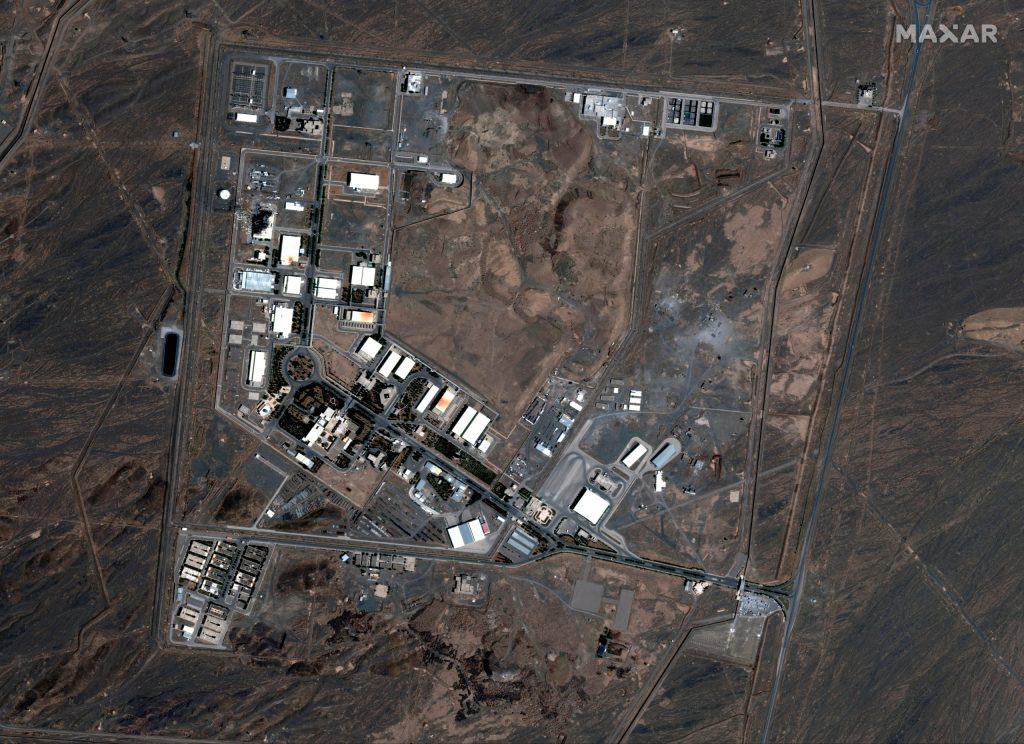
Against the backdrop of JCPOA (Joint Comprehensive Plan of Action) negotiations in Vienna, conflict between Israel and Iran has increased in frequency and intensity. A string of attacks attributed to Israel and subsequent Iranian retaliations is steering a low-intensity conflict into a direction that can spark a regional crises.
The reason for the change in direction can be attributed to several causes: Increased Israeli attacks against Iran’s nuclear program over the last nine months, maritime attacks targeting Iranian-affiliated vessels, and Iran’s subsequent retaliations against Israeli-owned ships. Additionally, Israel’s eight-year “campaign between the wars” has disrupted Iran’s PGM (Precision Guided Munition) project in Syria.
Iran has blamed Israel for attacks against its nuclear program including an attack that reportedly damaged thousands of centrifuges at the Natanz nuclear facility on Sunday. Last July, a similar attack at Natanz caused a fire destroying a section of the facility. Intelligence officials cited in various reports attributed the attack to Israel. Several months later, Mohsen Fakhrizadeh, a nuclear scientist believed to be behind Iran’s push for nuclear weapons, was killed in an ambush in northern Tehran. Similar to the incidents noted above, Israel was blamed for the killing.
Another front in the conflict is in the maritime theater. A Wall Street Journal report revealed Israeli sea-based military operations against vessels carrying Iranian oil and weapons to Syria. In the last several weeks, Israel and Iran have been in a tit for tat exchange of retaliatory attacks. On Tuesday, Israeli media citing Lebanon-based al-Mayadeen, reported that an Israeli-owned ship was attacked near Fujairah, located in the United Arab Emirates. The attack – the third against an Israeli-owned vessel – was likely in response to an explosion that occurred inside the Saviz, an IRGC-linked military vessel on April 6.
Lastly, Israel’s campaign in Syria to thwart Iran’s attempts to transfer PGMs to Hezbollah in Lebanon has seen no signs of abating. On April 7, Israel attacked sites in western Damascus. Three weeks prior, Israel launched airstrikes near Damascus reportedly targeting ammunition depots used by Iranian-backed militias.
A Trend in the Wrong Direction
The attacks noted above have generally been measured and below a particular threshold as not to elicit a military response that would ignite a regional conflict. However, the amount of attacks on the nuclear, Syrian, and maritime fronts are intensifying during a time when Iran is seeking a renewed nuclear deal after years of heavy sanctions by the Trump administration.
It is also noteworthy to mention the uncharacteristic amount of leaks sourced from unidentified Israeli security officials about the maritime and Natanz attacks. The policy of strategic ambiguity has seemingly disappeared as detailed reports attributing Israel to attacks have been published mere hours after military operations have been executed – which in itself has caused a stir among some Israeli defense officials.
Additionally, Israel’s former Prime Minister Ehud Olmert added to the cascade of leaks by revealing detailed information to the Israeli media by remarking that the April 11 explosion at Natanz was caused by a bomb planted over ten years ago.
The leaks about covert operations only encourages an Iranian response and serves no operational purpose.
It is difficult to ignore the significance of Iran being attacked on three fronts in the span of less than a week. It isn’t a coincidence and the attacks are meant to send a message that Israel is willing to escalate the conflict despite the Biden administration’s attempt to salvage the nuclear deal.
Whether this strategy will deter Iran or force it to harden its position has already produced some unfavorable results. Nevertheless, what is occurring is unprecedented, and on a course towards a regional conflict that neither country is likely looking for.







